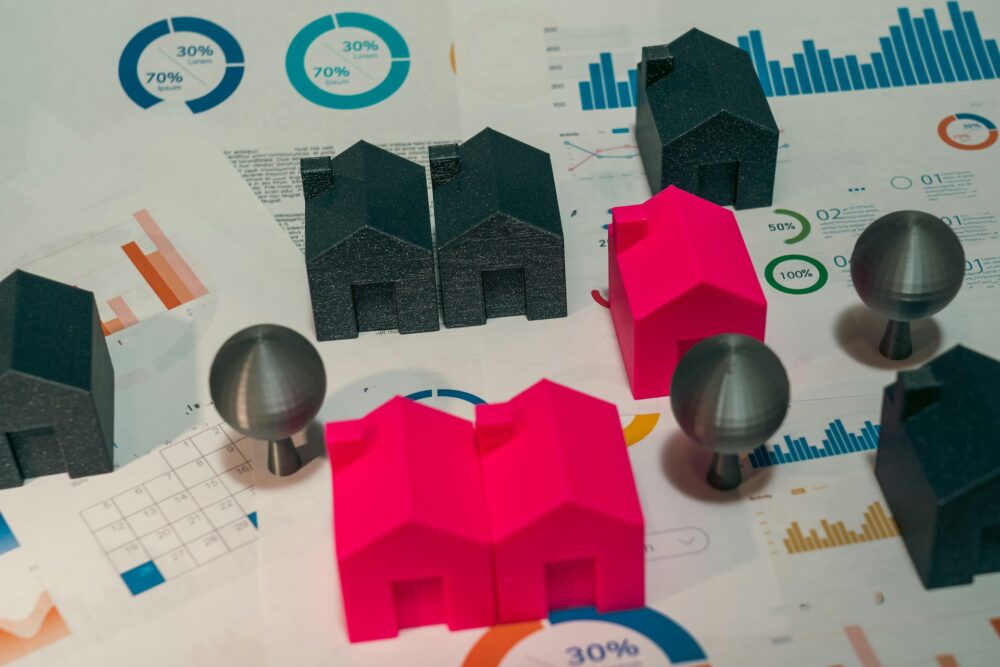Fintech
Fintech Company Duppla Offers an Alternative for Colombians to Finance Their Homes
In Q2 2024, Colombia financed 42,704 homes, a 3.8% increase from 2023, but still below market standards. Colombian fintech Duppla offers an alternative, debt-free housing financing model, disbursing $13 billion for over 100 families. With flexible, fast approvals and no traditional bank requirements, Duppla aims to finance 180 homes by year-end, totaling $25.5 billion.

Much has been said about the housing loan rate war waged by Colombia’s big banks, which has led most to set them close to 10% EA. However, due to high inflation and risk policies maintained by financial institutions, the number of Colombians with access to housing financing has not grown significantly. Duppla, a Colombian fintech company, now offers an alternative solution to traditional financing.
According to the latest report from the National Administrative Department of Statistics (DANE) on Housing Finance (FIVI) for the second quarter of the year, indicators for access to mortgage credit in Colombia show slow progress.
In the second quarter of 2024, 42,704 homes were financed, which represented a variation of 3.8% compared to the same quarter of 2023 (41,148 homes). Although this increase is positive, it is still insufficient to reach the minimum levels considered standard in the market, especially after a previous drop of -15.9%.
Faced with this situation, Duppla, a Colombian fintech company, developed a new financing model with which it has already disbursed nearly $13 billion so that more than 100 Colombian families could fulfill their dream of owning their own home.
Duppla considers other sources of income, including informal jobs, payments from abroad, and even extracts from digital wallets
Felipe Fierro, co-founder of Duppla, explained that the company operates under a debt-free scheme, where the company and the buyer join together to acquire a home, which must be a property ready to be inhabited, new or used, and not exceed $500 million.
“We see ourselves as a ‘rocket’ in the financial life of our clients, preparing them so that, in less than five years, they are ready with the requirements that a traditional bank asks of them, increasing the initial fee and improving their credit score,” said Duppla founder..
One of the keys to the success of the financing model promoted bu Duppla lies in its flexibility and speed. Instead of requiring an open-ended contract or fully banked income, Duppla considers other sources of income, including informal jobs, payments from abroad, and even extracts from digital wallets such as Nequi or Daviplata. This significantly broadens the spectrum of people who can access this type of capital and fulfill their dreams of owning a home.
Additionally, the evaluation process is very agile, as it takes an average of 24 hours to evaluate the applicant and 48 hours for the property, allowing disbursements in less than a week. Once the client has purchased their home, the monthly payment of the fee made to this fintech allows users to improve their credit score despite not being a debt, since each payment is reported to the risk centers, thus increasing the opportunities to access traditional financing in the future.
“With the desire to continue growing and being a financial vehicle for the dreams of millions of Colombians, we aim to close 2024 with more than 180 homes financed, reaching a total investment of $25.5 billion,” highlighted Fierro, Duppla’s CEO, who added that, in a country where only a small fraction of the population can access a home loan, they remain committed to their mission of making the dream of owning their own home a reality for more families.
__
(Featured image by Jakub Zerdzicki via Unsplash)
DISCLAIMER: This article was written by a third party contributor and does not reflect the opinion of Born2Invest, its management, staff or its associates. Please review our disclaimer for more information.
This article may include forward-looking statements. These forward-looking statements generally are identified by the words “believe,” “project,” “estimate,” “become,” “plan,” “will,” and similar expressions. These forward-looking statements involve known and unknown risks as well as uncertainties, including those discussed in the following cautionary statements and elsewhere in this article and on this site. Although the Company may believe that its expectations are based on reasonable assumptions, the actual results that the Company may achieve may differ materially from any forward-looking statements, which reflect the opinions of the management of the Company only as of the date hereof. Additionally, please make sure to read these important disclosures.
First published in Portafolio. A third-party contributor translated and adapted the article from the original. In case of discrepancy, the original will prevail.
Although we made reasonable efforts to provide accurate translations, some parts may be incorrect. Born2Invest assumes no responsibility for errors, omissions or ambiguities in the translations provided on this website. Any person or entity relying on translated content does so at their own risk. Born2Invest is not responsible for losses caused by such reliance on the accuracy or reliability of translated information. If you wish to report an error or inaccuracy in the translation, we encourage you to contact us

-

 Impact Investing1 week ago
Impact Investing1 week agoEnfinity Launches First Solar Plant in Italy with Microsoft
-

 Markets5 days ago
Markets5 days agoSilver Dips Sharply, While Gold Gains Amid Mixed Stock Market
-

 Crowdfunding2 weeks ago
Crowdfunding2 weeks agoEvenFi Launches Run-Off Service to Protect Investors as Crowdfunding Platforms Exit
-

 Africa2 days ago
Africa2 days agoTunisia Holds Interest Rate as Inflation Eases, Debate Grows

























